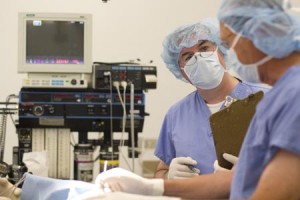At CARE we conduct reproductive toxicity studies designed to investigate the affect of a test article on male and female fertility and reproductive performance, estrous, spermatogenesis, implantation, embryo-fetal survival and development, gestation length, parturition, lactation, pup survival and development (including potential functional and behavioral effects), and the ability of offspring from the exposed parental generation to reproduce normally.
We conduct non-GLP pilot studies to provide data needed to determine dose levels for definitive studies. Pilot and embryo-fetal development studies are usually conducted in rats and rabbits.
We usually conduct fertility and reproductive performance studies and pre and postnatal development studies in rats or mice. Mice or dogs can also be used when necessary for embryo-fetal development studies.


